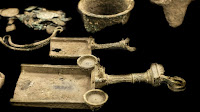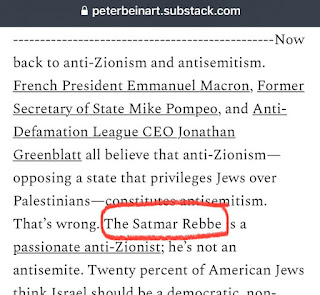What were ornamental bronze incense burners and a wine server doing in a hiding complex dating from the Bar Kokhba Revolt in the Judean foothills?
Israel Antiquities Authority (IAA) investigators suspect that the remarkable archaeological finds seized by Lev Habira police from antiquities dealers last week are actually battle spoils captured from Roman soldiers by Bar Kokhba rebels.
During a routine patrol in the Musrara neighborhood last week, detectives from the Lev Habira police station in Jerusalem noticed a vehicle driving in the wrong direction up a one-way street. The vehicle looked suspicious, so the detectives stopped and searched it. They were amazed to find a box in the trunk containing amazing and unusual archaeological finds.
Inspectors from the Israel Antiquities Authority’s Antiquities Robbery Prevention Unit were called to the police station and immediately realized that the remarkably well-preserved finds date from the Roman period. They include two ornate 2,000-year-old bronze censers that were used to burn ritual incense and probably belonged to affluent Roman houses and temples. A bronze jug for serving wine was also recovered. The vessel bears a depiction of a Roman banqueting scene showing a reclining figure holding a jug of wine. Other illicit finds include an ornate stone tripod bowl, Roman clay lamps, and hundreds of coins dating from the Late Roman period (second–third centuries CE).
Bronze artifacts are relatively rare finds in Israel since then, as now, metal was an expensive commodity and was usually melted down for reuse. Such finds are generally recovered from archaeological sites where they were deliberately concealed, or in hiding complexes where they were left after being taken in battle during the Bar Kokhba Revolt.
The discovery of the finds prompted the Israel Antiquities Authority to launch a criminal investigation against the three suspects from the vehicle. The inquiry reinforced suspicions that the items were brought to Jerusalem with the aim of selling them to an antiquities dealer. The Robbery Prevention Unit believes that the ancient items were taken from a hiding complex dating from the Bar Kokhba Revolt that has been under surveillance in recent months.
















